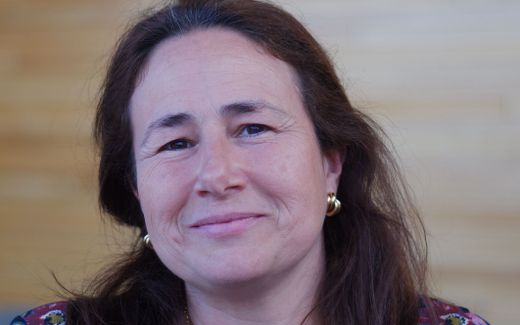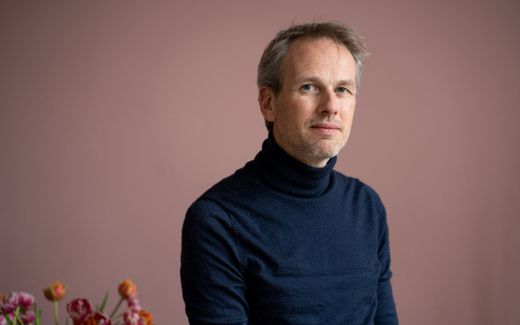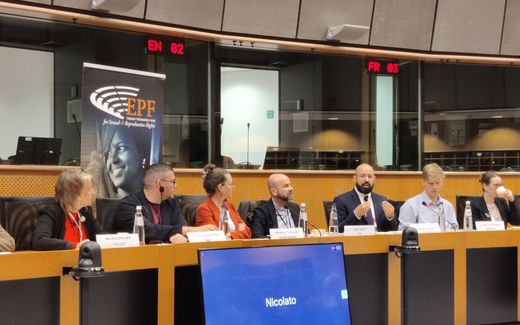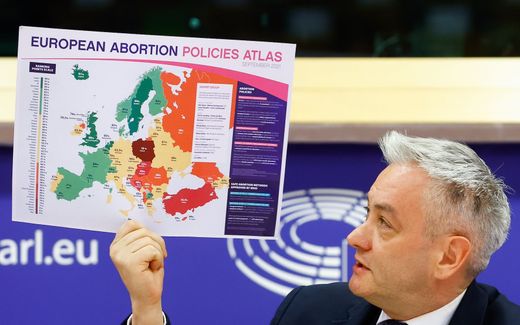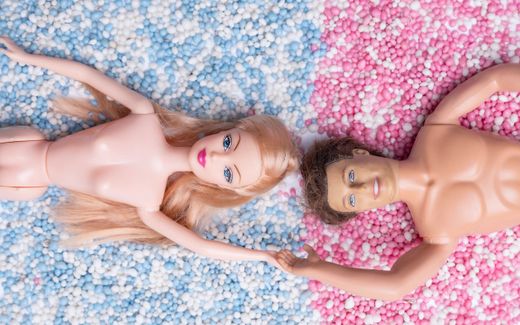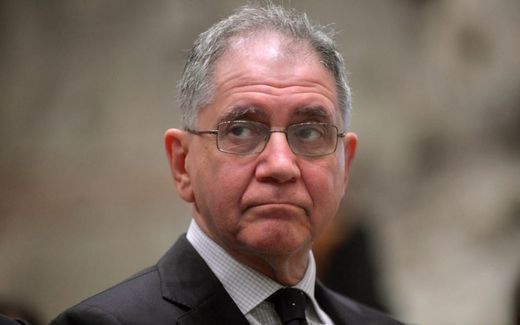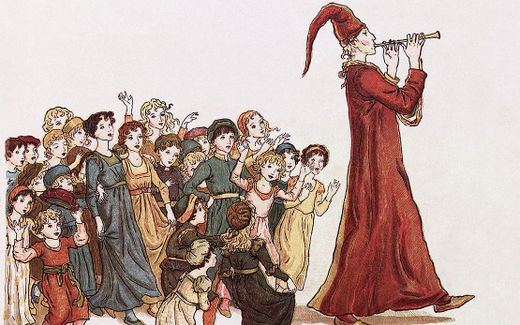Ladislav Ilčić fights against lies and misleading in the European Parliament
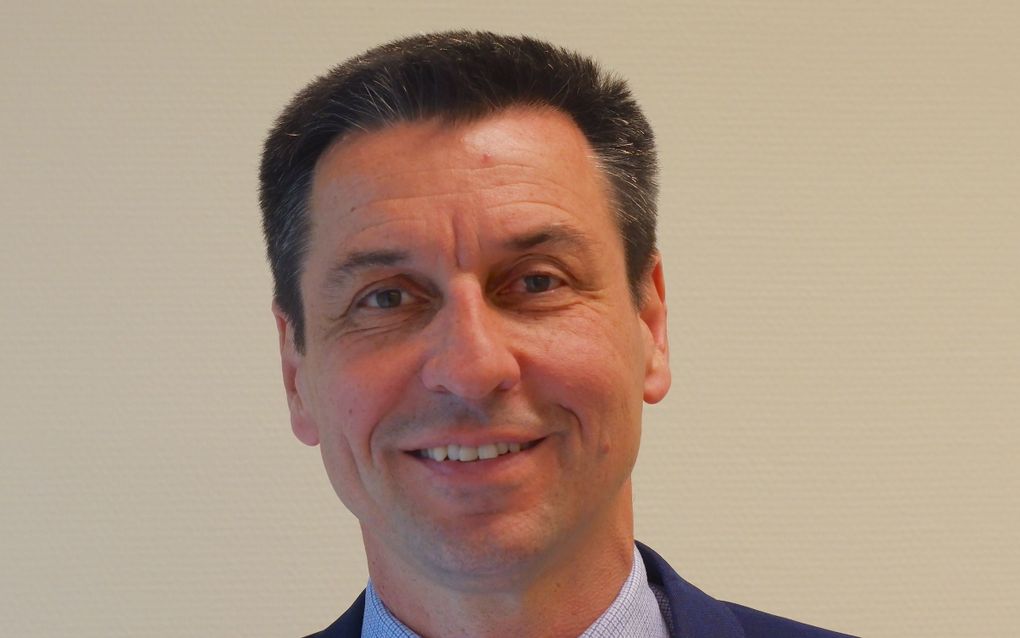
MEP Ladislav Ilčić is campaigning as an independent candidate in Croatia. Photo CNE.news, Evert van Vlastuin
European Union
In the European Parliament, there are strong forces to discredit the Christian faith, says MEP Ladislav Ilčić. The Croatian Catholic uses his seat to fight for the conservative view of man. “A man can change and look female, but he can never become a mother.”
Ilčić had a nice career as a musician in Croatia. He played the violin in the national symphony orchestra. But in addition to his artistic career, he was always active in NGOs, making this world a better place.
Ilčić (born 1970) sits in an almost empty office in the European Parliament in Strasbourg. The father of six just arrived from Croatia, where he gathered signatures for his candidacy. He was on his mobile phone for ten hours a day for some weeks. “Not a good example to the kids”, he admits. “But we got 10,000 signatures while we only needed 5,000”, he says with a big smile.
Between 2021 and early 2024, he represented the Croatian Sovereignists. Although this is a Conservative Christian party, Ilčić felt obliged to go as an independent. “In national politics, the party thinks about a coalition with the Socialists. For me, that goes too far. My personal popularity is bigger than the party’s, I guess. For me, a political party is a tool, not a goal.”
What did you see as your job here in the EP?
“To promote Christian values. My worldview is Christian Conservativism. There is a political philosophy and anthropology behind every decision. Politicians lie if they say that they don’t have such a worldview. Everybody has it, and it gives direction to our decisions.
For me, the crucial event in history is the resurrection of Jesus Christ. That is my basic identity. I don’t impose it on others, but I do promote it. It is the best for all people.
Everybody has a free will. I want that freedom for myself, too. But I also like the freedom for my children to receive Christian education. In my country, it is the Catholic Church that is historically the strongest.”
You were born in 1970. As a young man, you grew up in war in ex-Yugoslavia. What scars from that do you carry with you in your work?
“We were used to a one-party system. The public square was reserved for the Socialists. It was no hard Communism, but it was still oppressive.

There was no religious freedom. Faith was only for the home. As a teacher, you would not be expected to go to church. My father was a medical doctor but could not improve his career. Certain studies you could not do as a believer.
We lived with seven refugees from Eastern Slavonia in our home for two years. Today, we help Ukraine with weapons, but then, there was an arms embargo against us. We had to smuggle arms to defend ourselves against the Serbian aggression.”
And what is the lasting impact of that on you?
“I learned that religious freedom is essential. There should be a right to express your conscientious objection. I feel that those rights are being attacked in the European Parliament.
Think back to the Covid pandemic. The strong narrative from the state was that vaccination would decrease the transmission of the virus. Recently, we had a hearing with Pfizer. They said that vaccination did not decrease the transmission, which meant that the communication from the state was manipulative. Those things still happen.”
What was the largest dossier you worked with here?
“My biggest impact was in fishery. For Croatia, that is very important. All countries have different circumstances and techniques. The Croatian fishers are very grateful to me.
For the rest, I have been active with energy, agriculture and the EU’s enlargement with Bosnia and Kosovo.
I saw that there is a value system behind all decisions. Most of the value systems in this Parliament are led by the left. That has had bad results. Look at abortion, LGBT rights, and sex change; all this is strongly promoted here in the EP. But the historically proven lifestyles of marriage and family do not receive credits.
Demography is the victim of these developments. Of course, you can compensate for the shortage of babies with immigrants. But that does not work. Too many migrants do not integrate, leading to a security risk. Therefore, I believe in strong borders. It is possible to have secure borders; look at Australia. It is not without intention that our borders are not safe.
There is a plan behind all this. The pattern is that migrants vote left. Just because those parties give them more money. Migrants do not support the LGBT worldview, but by voting left, they still support this.
In the past decades, I have seen a continuous attempt to decrease Christian influence by saying that we, as believers, discriminate. When I speak positively about marriage, I do not discriminate. Other relationships may have rights, but it is a lie to say they are equal.
Another example: Von der Leyen thought it better not to say “Merry Christmas” since she thought this was an obstacle to societal equality. And if Sophie in ’t Veld writes a report about the rule of law in Poland, she quickly sees a breach of that in the Christian culture there. But all this is mixed with their wishes.
Europe has a Christian culture. But we need the Christian faith to keep this culture flourishing.”
What are your chances of re-election?
“Quite good, I think. From a poll a few years ago, I know that 60 per cent of the Croatians know me. That might be even higher now. And for the rest, there seems to be a Conservative wave. The ECR group of European Conservatives and Reformers might even grow from 62 to 100 MEPs.
If I am not re-elected, I can always return to the orchestra. Above this, I have been a grandfather for four months now.”
If you are re-elected, what plans do you have?
“That partly depends on the composition of the new Parliament. How many Christians will there be? And how many of them are brave enough to speak out for Christian values? Sometimes, we could have a much bigger impact in this Parliament. If there are enough Christians, it would be good to step into the Human Rights Committee and the Women’s Rights Committee to impact our societies.
I want to spend much time on a new European Citizen’s Initiative. The idea is to ensure that EU institutions do not press for gender change. Using the ECI as a tool means gathering 1 million signatures in one year in seven countries. That is quite a job.
At the moment, the EU promotes sex change, but this should stop. Personally, I think that gender change is a lie. A person’s primary identity is the ability to become a father or a mother. Not my shoulders but my reproductive means are essential for my identity. They can change me so that I look female, but I will never become a mother. I think minors should be protected against this misleading narrative.”
Related Articles


